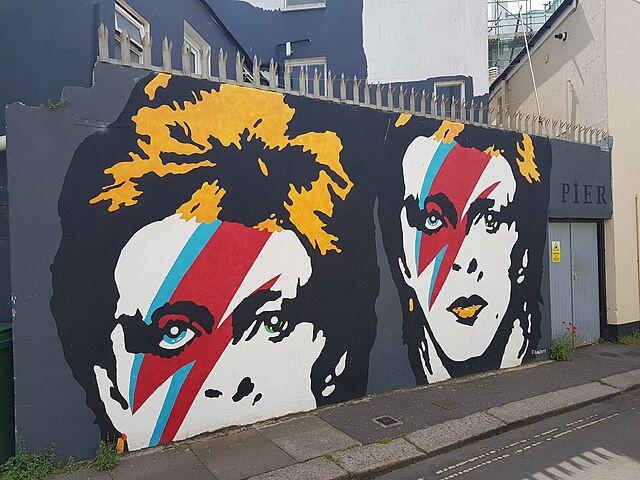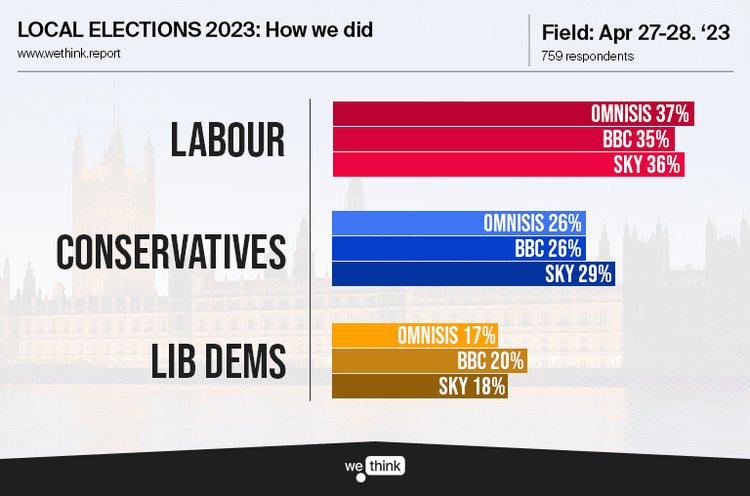Social media misinformation, immigrants and racism - what do Brits think were the reasons for the riots?
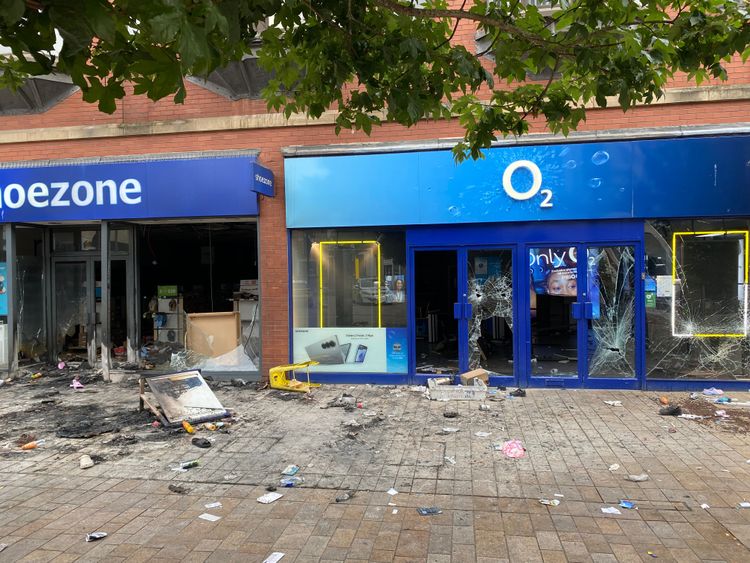
‘24
By: Atyeo Thomas du Toit
Riots have gripped Britain’s streets since the end of July, when misinformation was spread about the identity of the man who killed three children in a horrific incident in Southport.
This week, we decided to ask Brits what they really thought about the riots - what were they caused by? How should they be dealt with? and are the ideas driving them justified?
Social Media Companies and users and their roles / responsibilities
Social Media influencers such as Andrew Tate and Stephen Yaxley-Lennon (also known as Tommy Robinson) jumped on the story early to spread misinformation claiming the suspect was ‘Ali Al-Shakati’, a Muslim asylum seeker who arrived on a small boat in 2023.
Social media and Telegram are widely thought to be the tool that allowed these ideas to spread, and was used to plan riots across the country. We asked the UK public what they thought about the role of social media, and whether companies were doing enough to limit the spread of mis- (and dis-) information.
When asked if right-wing social media accounts had contributed, or not, to the current wave of riots, 63% of Brits said they did, compared to only 10% who thought they did not.
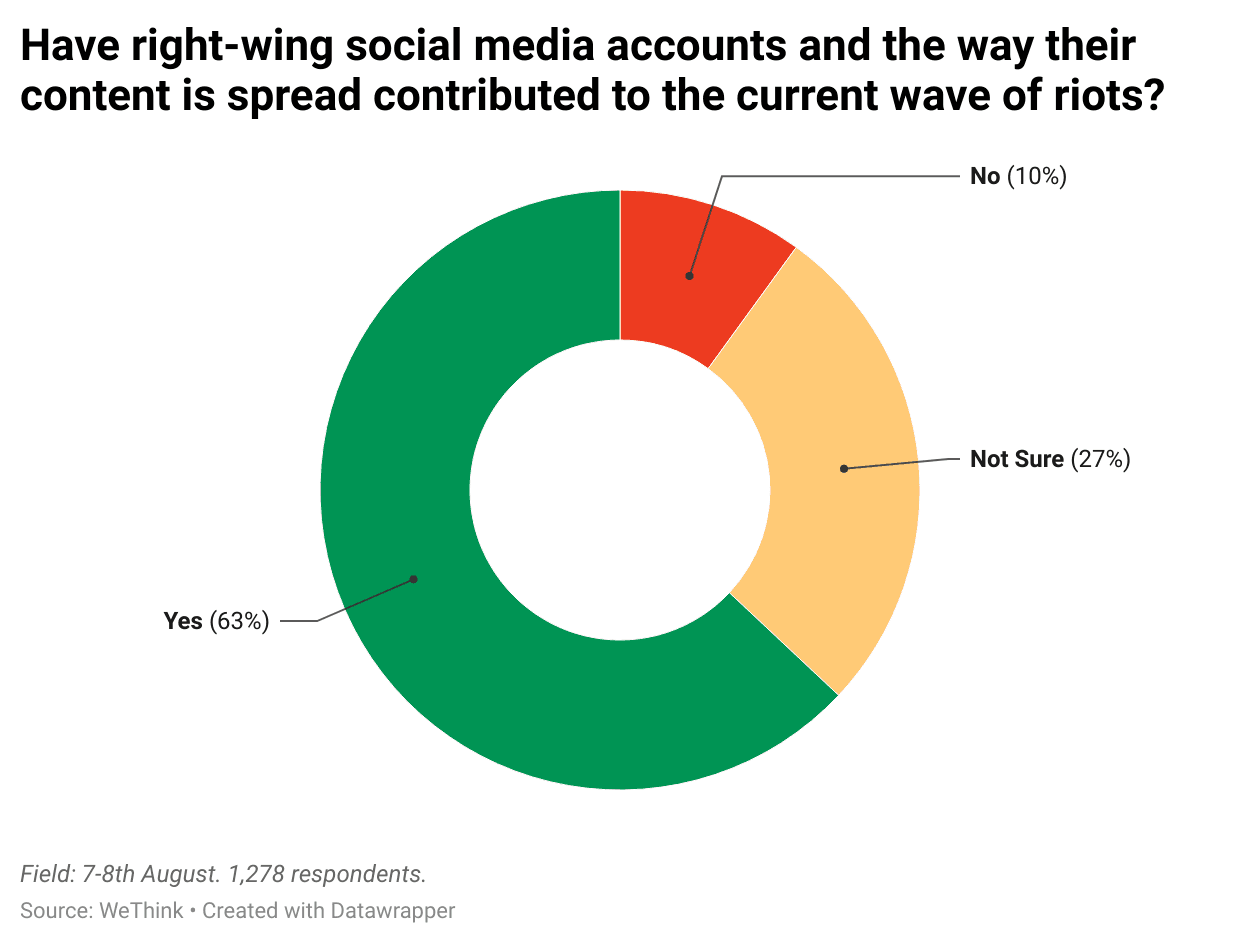 On the back of this, we asked if social media platforms were doing enough to stop misinformation in relation to the riots. 68% said they weren’t doing enough:
On the back of this, we asked if social media platforms were doing enough to stop misinformation in relation to the riots. 68% said they weren’t doing enough:
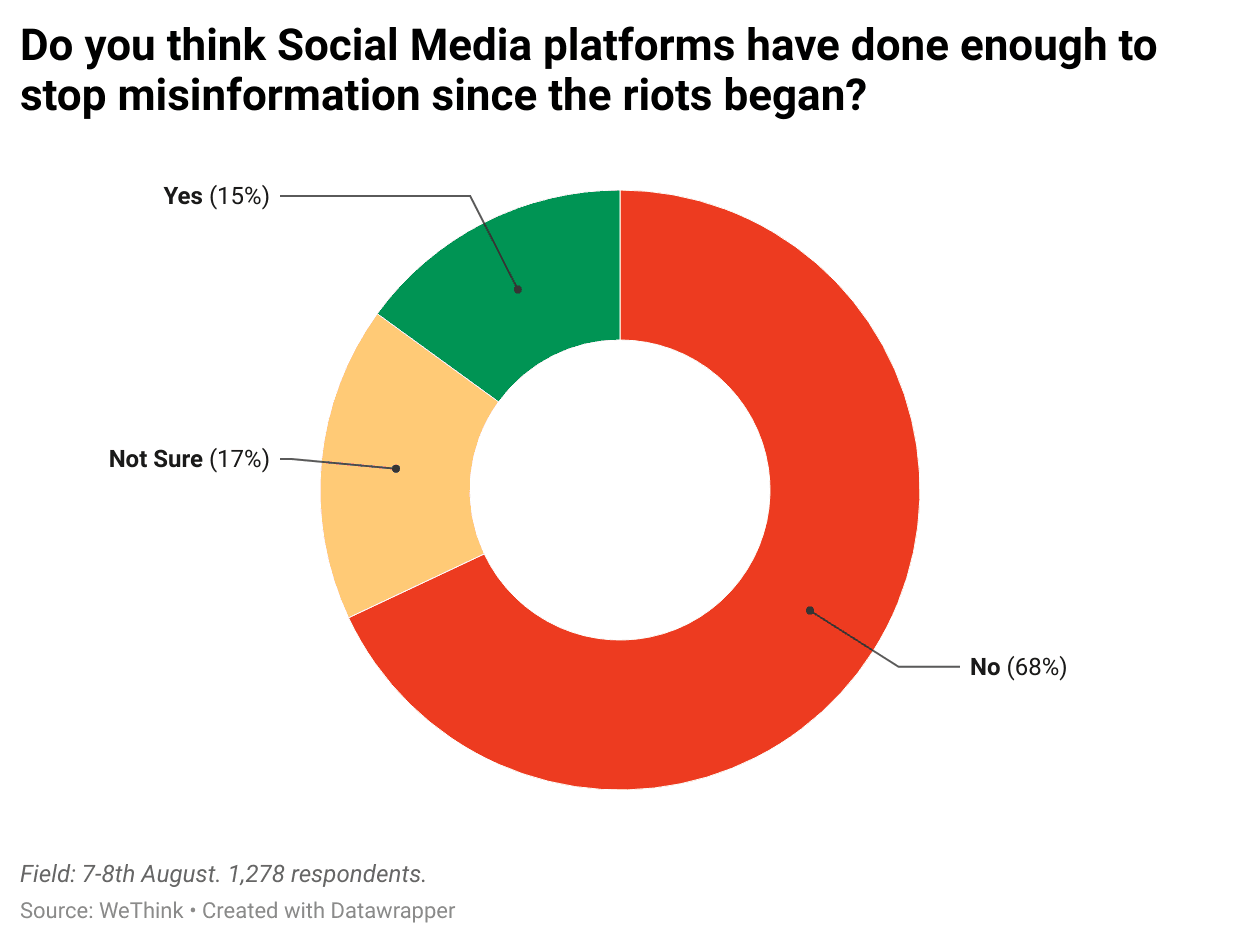 Social media regulation has been the topic of hot debate, and will no doubt continue to be after the latest wave of riots hit the UK. This week, we’ve even seen Keir Starmer directly addressing Elon Musk, owner of X, over his comment that ‘a civil war is inevitable’ on a post relating to the riots.
Social media regulation has been the topic of hot debate, and will no doubt continue to be after the latest wave of riots hit the UK. This week, we’ve even seen Keir Starmer directly addressing Elon Musk, owner of X, over his comment that ‘a civil war is inevitable’ on a post relating to the riots.
There is a suggestion from our data that if Starmer can link social media reform to the unrest seen on Britain’s streets, the 68% who want platforms to do more to stop misinformation would likely be on board.
Further evidence for reforms for social media regulation and online safety comes from our question on whether those actively sharing false information online should face criminal charges:
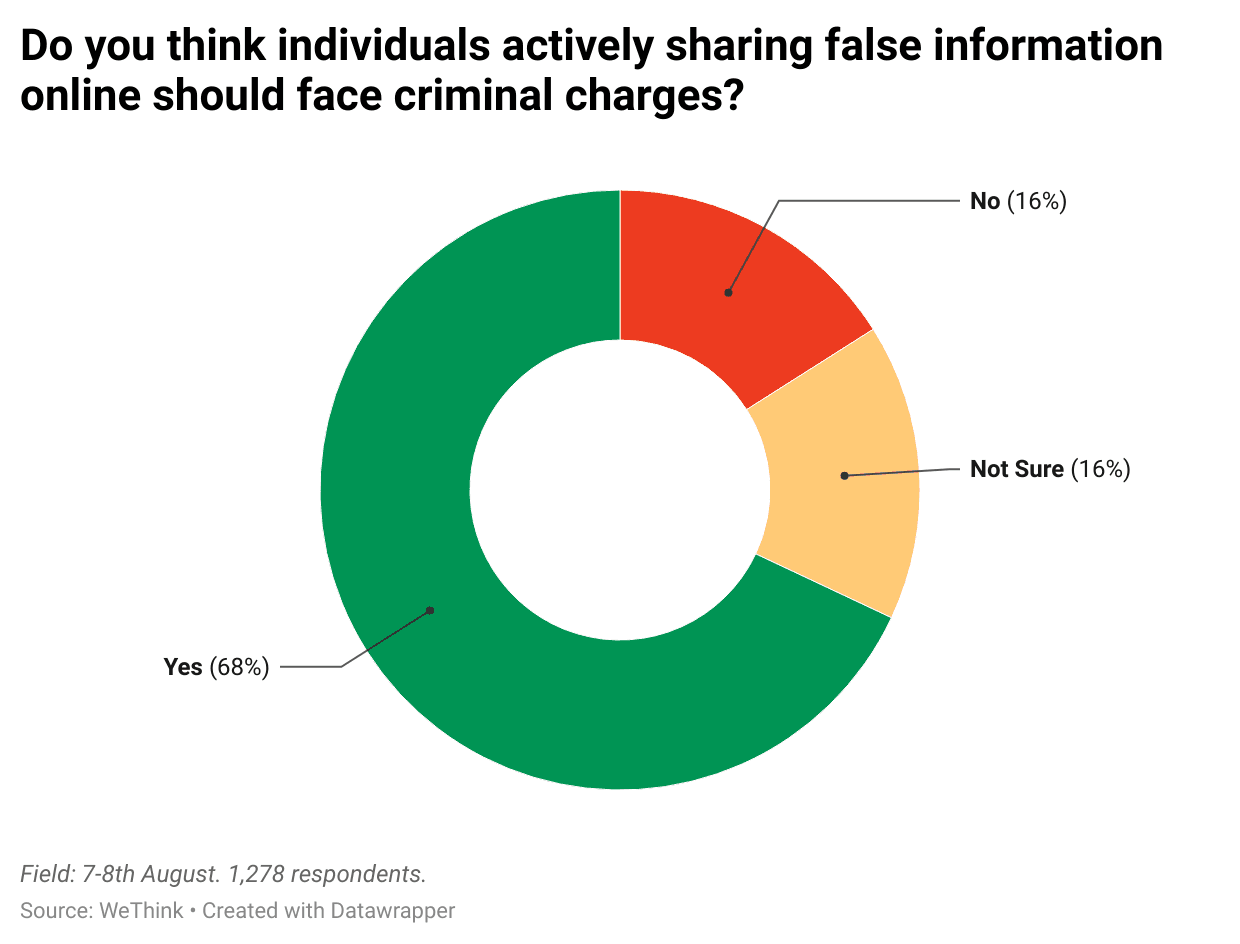
Again, 68% wanted those instigating these riots through the spread of misinformation to face criminal charges. There is the case, therefore, for a popular dual policy of greater regulation of social media companies, and greater criminal sanctions for users spreading false information.
This comes in the context of 49% of respondents who use social media reporting that they had seen an increase in ‘hate speech accounts or posts’ recently. Regulation of ever-evolving, global software is always difficult, as the government will find when they try to make good on their manifesto commitment to introduce regulation on AI.
On Friday 9th August, Tyler Kay and Jordan Parlour were sentenced to 38 months and 20 months in prison respectively for stirring up racial hatred on social media.
Ultimately though, it seems the British public are not happy with the status quo. Regulation and criminal sanctions seem popular, and the government can, if desired, ride on a public wave of anger about the recent riots to deliver more holistic change than would normally be politically viable.
British perceptions of violence and riots
We then sought to gauge how many Britons supported the riots, including their ideals and violence. We found just 9% of Brits feel positive about the current riots, and almost half (46%) feel ‘very negative’ about them:
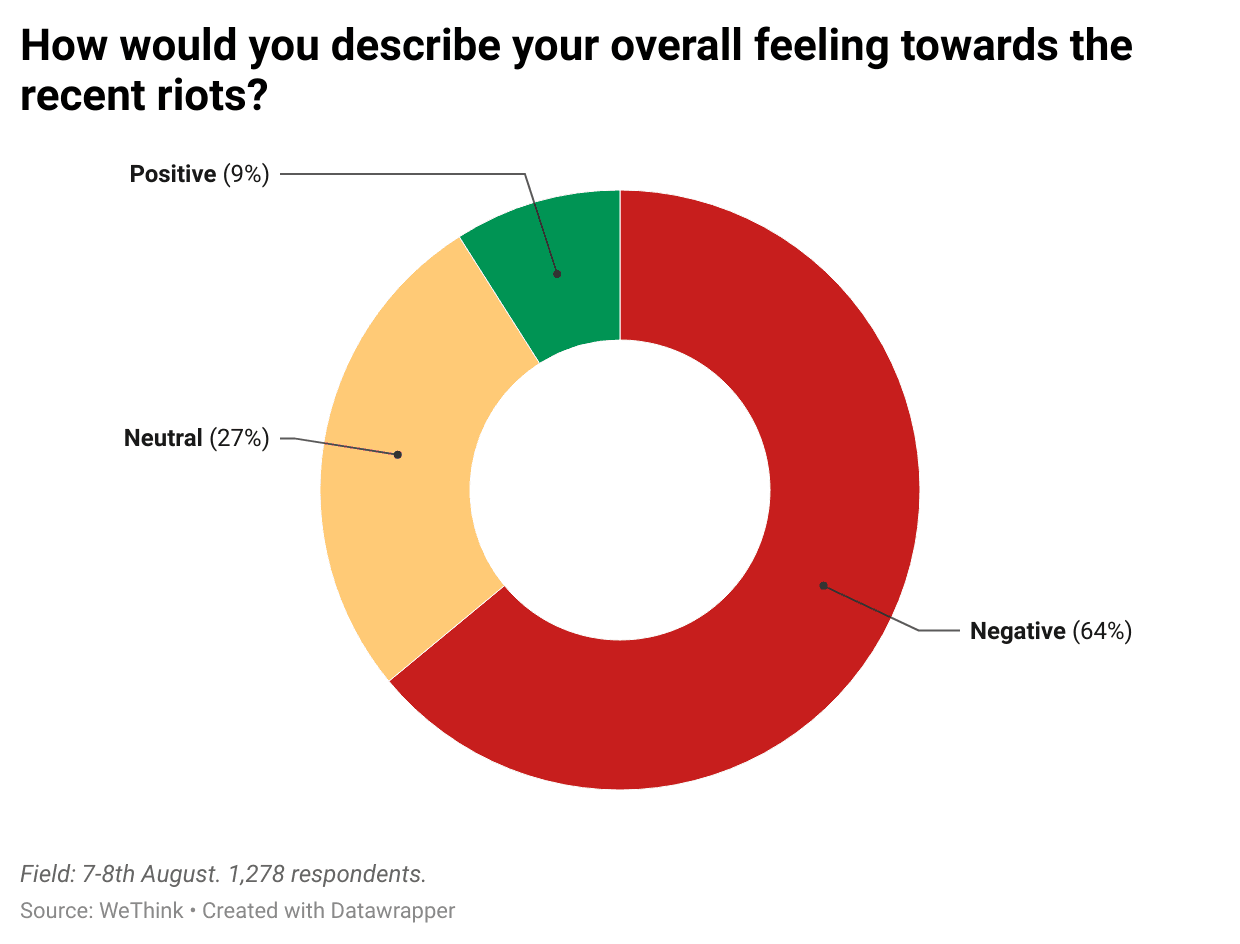
We then asked whether people supported the goals and motivations behind the riots, which returned a much more significant support base of 28%. These are people who may be unhappy with the current state of immigration and the asylum system, but don’t necessarily agree with the violence and arson associated with the riots:
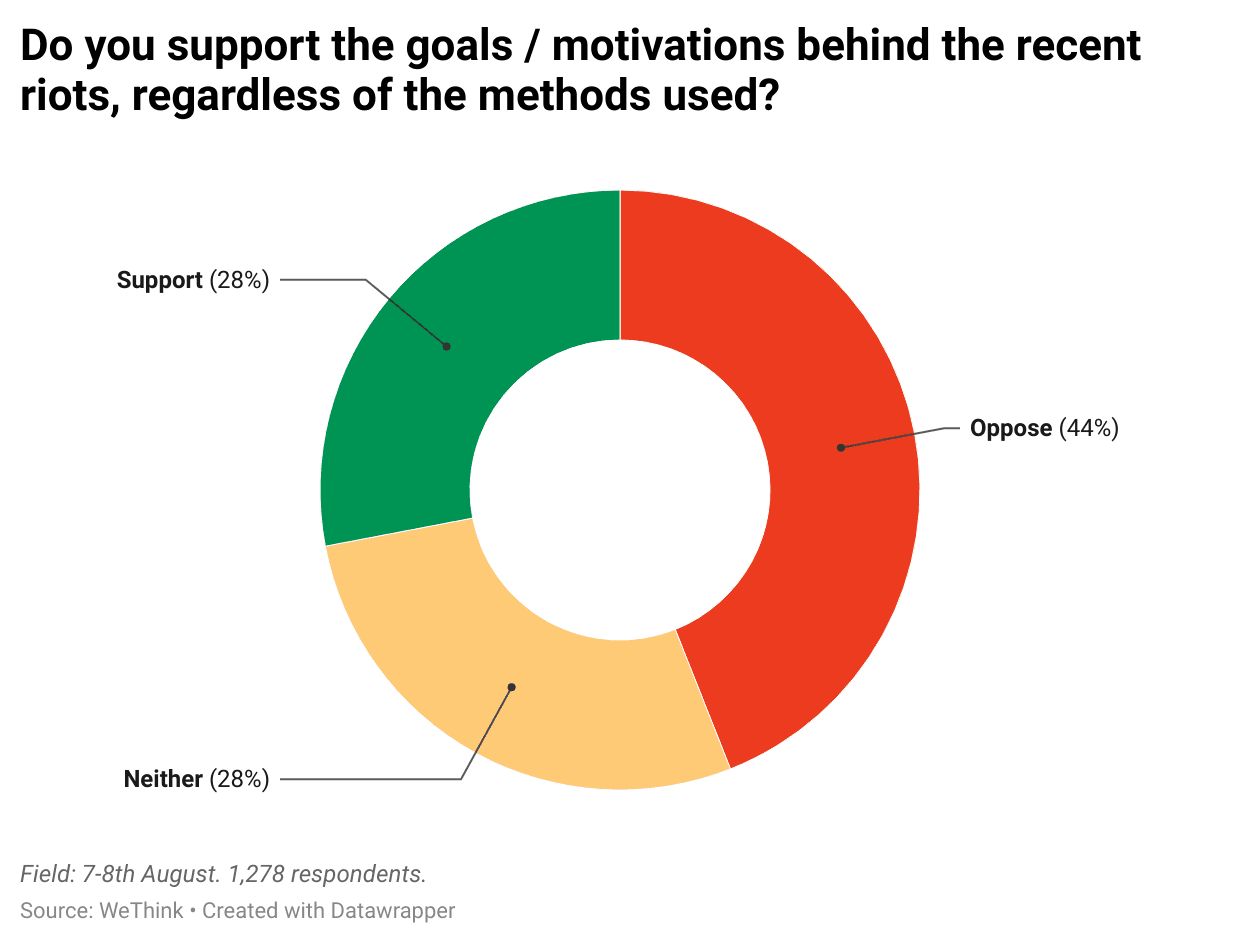
This is supported by our next question, which asked specifically if Brits agreed with the use of violence from rioters. Only 15% said they agreed, whilst a significant majority of 61% disagreed:
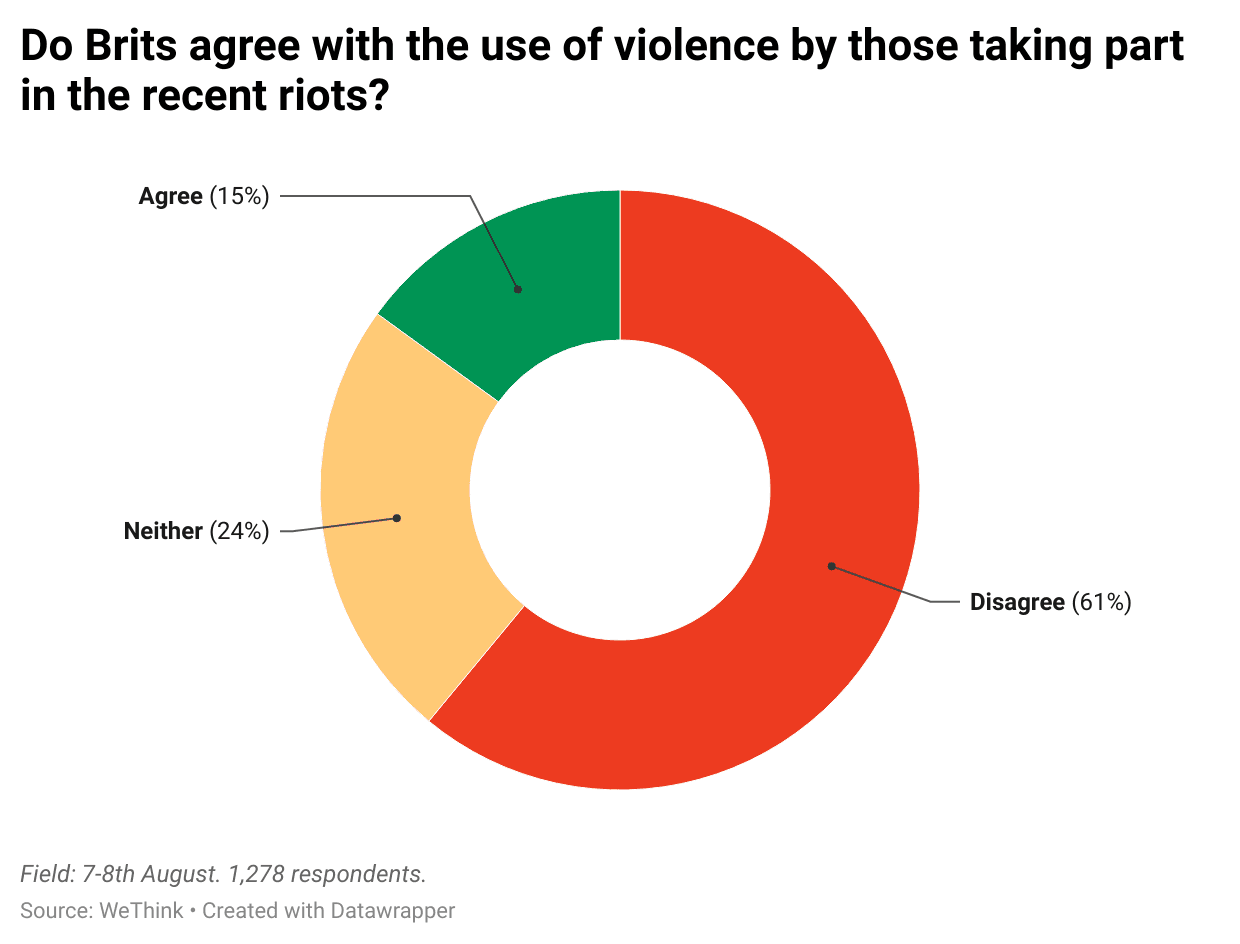
We can therefore confidently say that the riots, as a whole, are not popular amongst the public, with just 9% feeling positive about them. What cannot be ignored, however, is the fact that 28% of the public are sympathetic towards their cause, and 15% support the violence they’re seeing. There must therefore be a political response to reframe the immigration debate, and to win over those undecided and opposing people to the view the government wants to take.
So, what do those 28% that support the goals of the riots think they were caused by? Let’s first start with all responses:
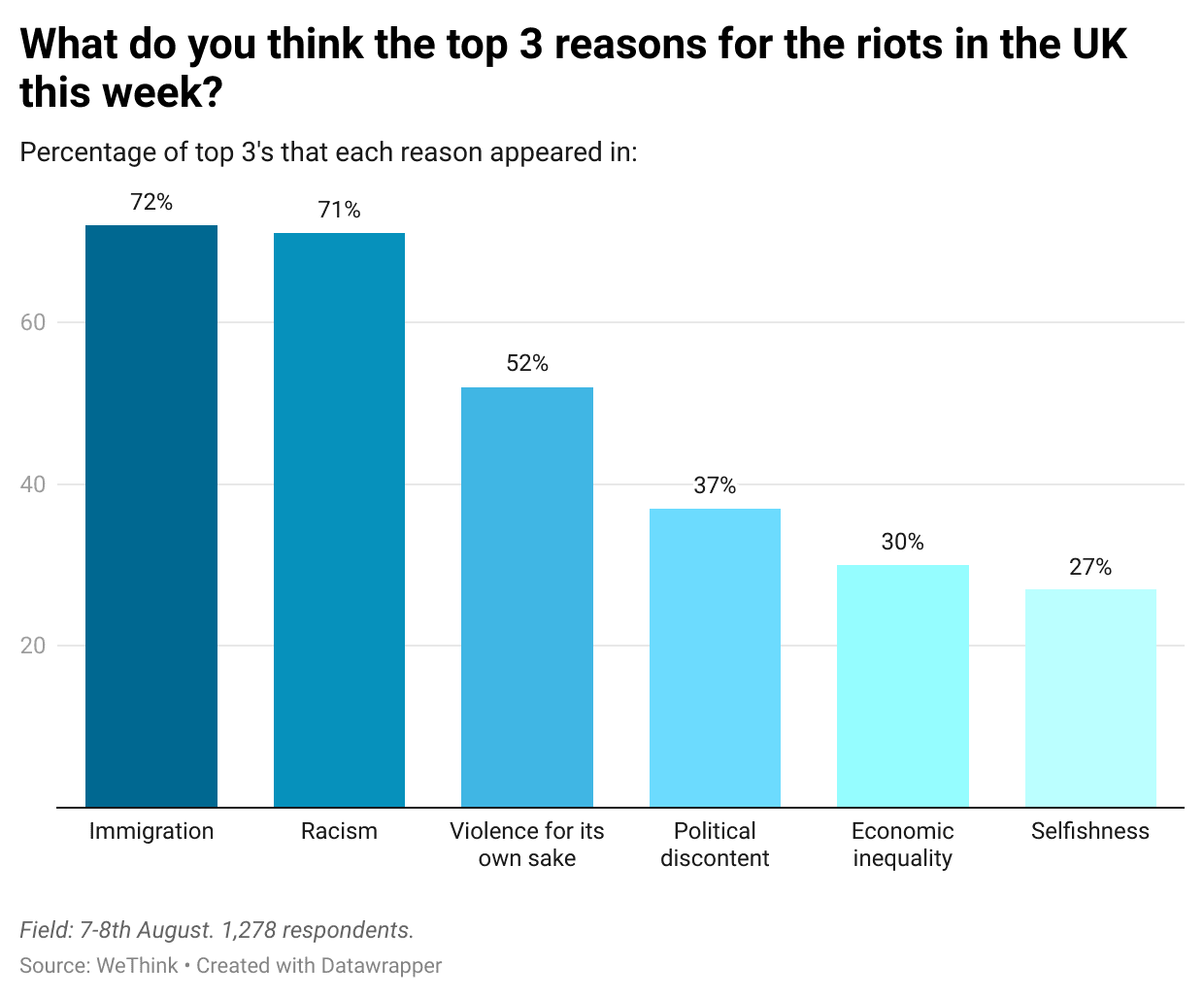
We asked Brits to rate the top 3 reasons why the riots were happening, and then looked at how many times each reason appeared in a top 3 list. Immigration and Racism were just 1 point apart as the top two reasons for the riots, whilst a majority of Brits think violence for violence’s sake was a major reason.
It is obviously hard to know how someone who reads each response will internalise the meaning, but the fact that 71% of Brits claimed Racism was one of the 3 major causes of the riots makes for some tough reading.
By those who oppose or support the goals of the riots, we see different reasons:
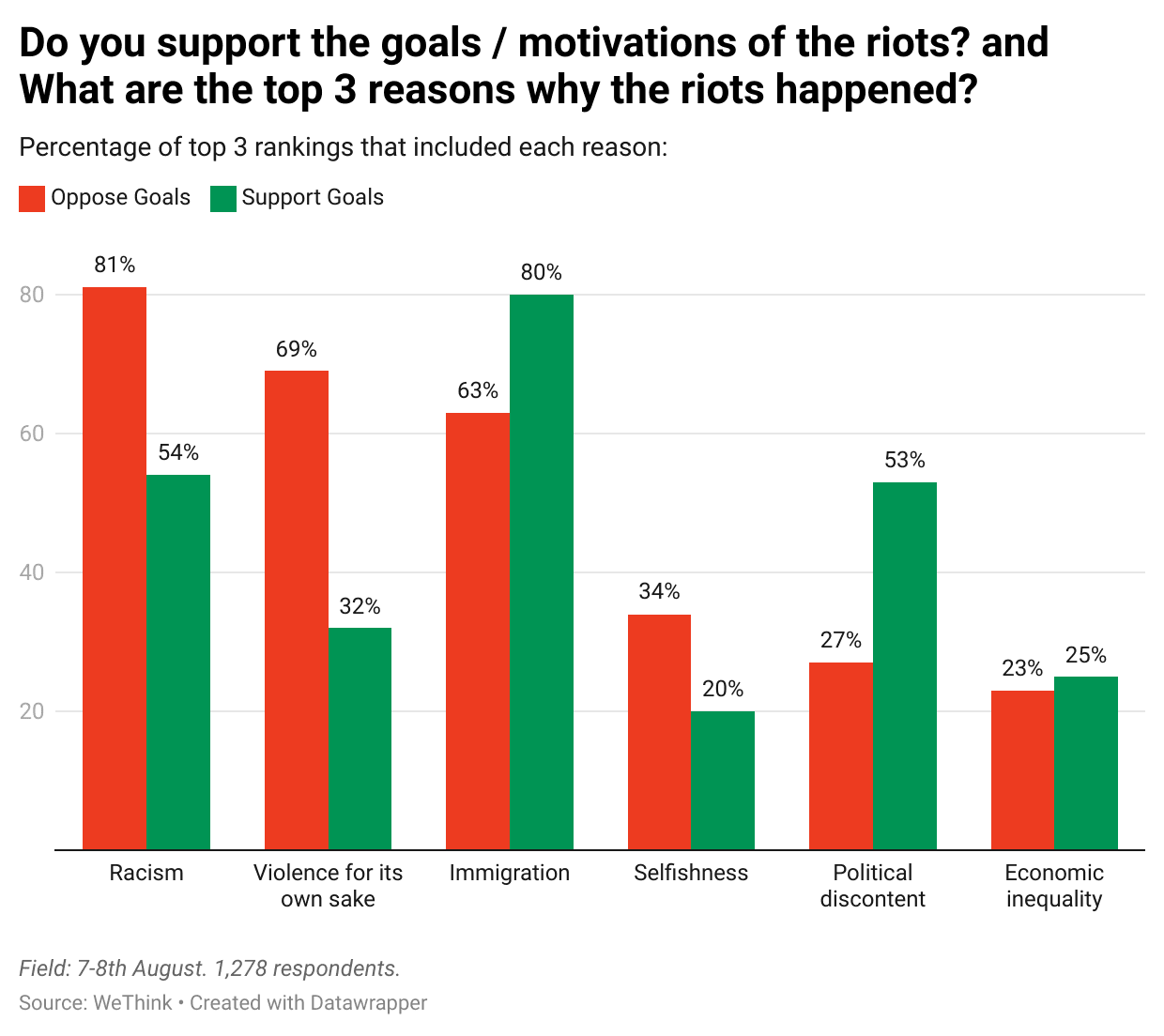
The top three reasons for Supporters of the goals of the recent riots were Immigration, Racism, and Political Discontent. Those who opposed the goals found Racism, Violence for its own sake, and Immigration as the top three.
What is most interesting about this dataset is the apparent admission by supporters of the rioters’ goals that the second biggest reason for the riots was racism. As said earlier, we don’t know if this is seen as a good or bad thing, but it is significant that this would make 15% of the population support the goals of the riots and think that Racism is in the top three reasons for them.
We can also tell that the people who support the goals of the riots are likely to think the goals are to reduce immigration, especially from different ethnic groups. Those who oppose the rioters’ goals are more likely to see them as looking for an excuse to commit violence and to be racist, as opposed to legitimate concerns over immigration, though this does still rank highly at 63%.
So how do the British public really feel about the riots?
The British public is overwhelmingly against the recent riots on Britain’s streets. They feel negative, and largely do not support the violence that they’ve seen. There is, however, a sizeable minority that seem to be willing to defend extremes, such as attacking refugee homes, in order to quell immigration.
There should be serious government policy alongside efficient communication to prevent legitimate debate about how many immigrants come into the country from falling into the territory of extremes - from violence to racism and beyond.
‘24
By: Atyeo Thomas du Toit
Sign up for our newsletter
Stay up-to-date with the latest poll results and insights.
